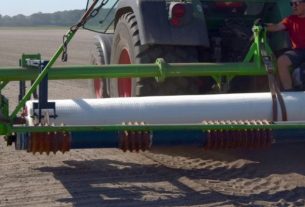Netherlands – Royal Dutch Shell plc (Shell) announced a final investment decision to construct an 820,000-tonne-per-year biofuels facility at the Shell Energy and Chemicals Park Rotterdam, formerly known as the Pernis refinery, in the Netherlands.
Once completed, the facility will be one of the largest in Europe for the production of sustainable aviation fuel (SAF) and waste-derived renewable diesel.
2,800,000 tonnes of CO2 could be avoided
A facility of this magnitude could generate enough renewable diesel to avert 2,800,000 tonnes of carbon dioxide (CO2) emissions annually, the equivalent of removing over 1 million European cars off the road.
The new plant will assist the Netherlands and the rest of Europe in meeting internationally mandated targets for carbon reduction. Additionally, it will assist Shell in meeting its own objective of becoming a net-zero emissions energy firm by 2050, in line with society’s progress toward meeting the Paris Agreement’s climate targets.
Advanced manufacturing techniques
The fuels will be manufactured using advanced manufacturing techniques. The facility is anticipated to use technology to collect carbon emissions generated during the production process and store them in the Porthos project’s empty gas field beneath the North Sea. Porthos is scheduled to receive a final investment decision next year.
Shell is upgrading its refineries (which totaled 14 in October 2020) into five energy and chemicals parks as part of its Powering Progress strategy. Shell wants to reduce traditional fuel output by 55% by 2030 and to increase the availability of low-carbon fuels such as biofuels for road transport and aviation, as well as hydrogen. The Energy and Chemicals Park Rotterdam is the second announced park, following the Energy and Chemicals Park Rheinland in Germany, which opened in July.
Scheduled to begin in 2024
The Rotterdam biofuels plant is scheduled to begin operations in 2024. It will utilise innovative technology developed by Shell to manufacture low-carbon fuels such as renewable diesel from waste in the form of spent cooking oil, waste animal fat, and other industrial and agricultural residual goods.
Until even more sustainable advanced feedstocks become generally available, a selection of certified sustainable vegetable oils, such as rapeseed, will augment the waste feedstocks. No virgin palm oil will be used as a feedstock for the factory.
Sustainable aviation fuel (SAF) might account for more than half of the 820,000-tonne-per-year capacity, with renewable diesel accounting for the remainder. Shell has the flexibility to modify this mix to satisfy consumer demand.
These low-carbon fuels will assist meet expanding demand in the transportation industry, even in areas that are notoriously difficult to decarbonize, such as heavy road transport and aircraft. SAF accounts for around 0.1 percent of global aviation fuel consumption at the moment. Shell’s investment will contribute to the expansion of SAF production, which is critical for aviation’s carbon reduction goals.




